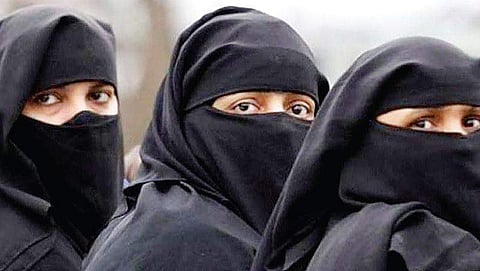

NEW DELHI: The Supreme Court’s recent decision to examine the constitutional validity of polygamy and nikah halala has created a stir among the Muslim community. While there was a clear divide in the community between the supporters and critics of talaq-e-biddat (instant triple talaq), on the issues of polygamy and nikah halala the community appears to have a unifiedstand that no outside intervention is welcome. Under the Sharia, polygamy allows a man to keep four wives and according to halala, a couple that undergoes divorce cannot remarry unless the woman marries another man and her second husband dies or divorces her.
One of the major arguments against triple talaq — that it was an unpopular practice among Muslims worldwide — may not hold against polygamy and nikah halala, both of which are accepted conventions among Muslims the world over.The Sunday Standard spoke to Islamic scholars and senior members of the clergy belonging to different school of thoughts to understand their views on the two practices. Some of them admitted there was a need of bringing reforms to curb the misuse of the two practices.
However, the reform should come from within the community and not be imposed from outside, they asserted.
Scholars from all school of thoughts among Muslims — Hanafi, Maliki, Shafi’i, Hanbali and Al-hadees — were on the same page on these issues.Moulana Mohammad Rahmani, president of Abul Kalam Azad Islam Awakening Centre, said the interference in Muslim Personal Law was unacceptable. “If there is any sort of fixing in nikah halala, it is a crime and that marriage is invalid. But the community can curb this misuse on its own. Nobody has the right to interfere in personal matters of any religion.” The scholars also insisted that the use of these two practices was rare in the country and therefore, the possibility of misuse was negligible.
All India Muslim Personal Law Board member Kamal Farooqui also condemned the misuse of the two provisions, but said there are valid reasons why these practices are allowed in Islam.The scholars explained that the practices are permissible only with strict conditions and their purpose is to ensure protection of women. “The purpose of polygamy is to ensure that a man does not abandon his sick wife,” said Muhammad Raziul Islam, a senior functionary of Jamat-e-Islami Hind. “What is being propagated as halala is not real halala. These practices are based on the teachings of Quran and cannot be interfered with.”
Zafarul Islam, president of the All India Muslim Majlis Mushaviratr and chairman of Delhi Minority Commission, and Muhammed Jafar of Jamaat-e-Islami Hind claimed polygamy was more prevalent among Hindus despite being banned in Hinduism. “Polygamy and nikah halala are hardly practised in India, though these are practices that come with stringent conditions. There are real problems of the community — such as lack of education, health facilities and unemployment — and the government should be concerned about those,” Jafar said.
Citing Quran and other Islamic scriptures, they said a Muslim man is permitted to have more than one wife only in extreme circumstance such as terminal illness of the first wife or her incapacity to bear children.
Waris Mazhari, professor of Islamic Studies at Jamia Millia Islamia, said there have been cases of misuse of polygamy and nikah halala by Muslim men in India.Suggesting a solution, Mazhari said that “just as is
the norm in some countries such as Pakistan, where polygamy is allowed only if the husband gets permission for the same from the first wife, some pre-conditions should be applied to polygamy practice in India, too”.